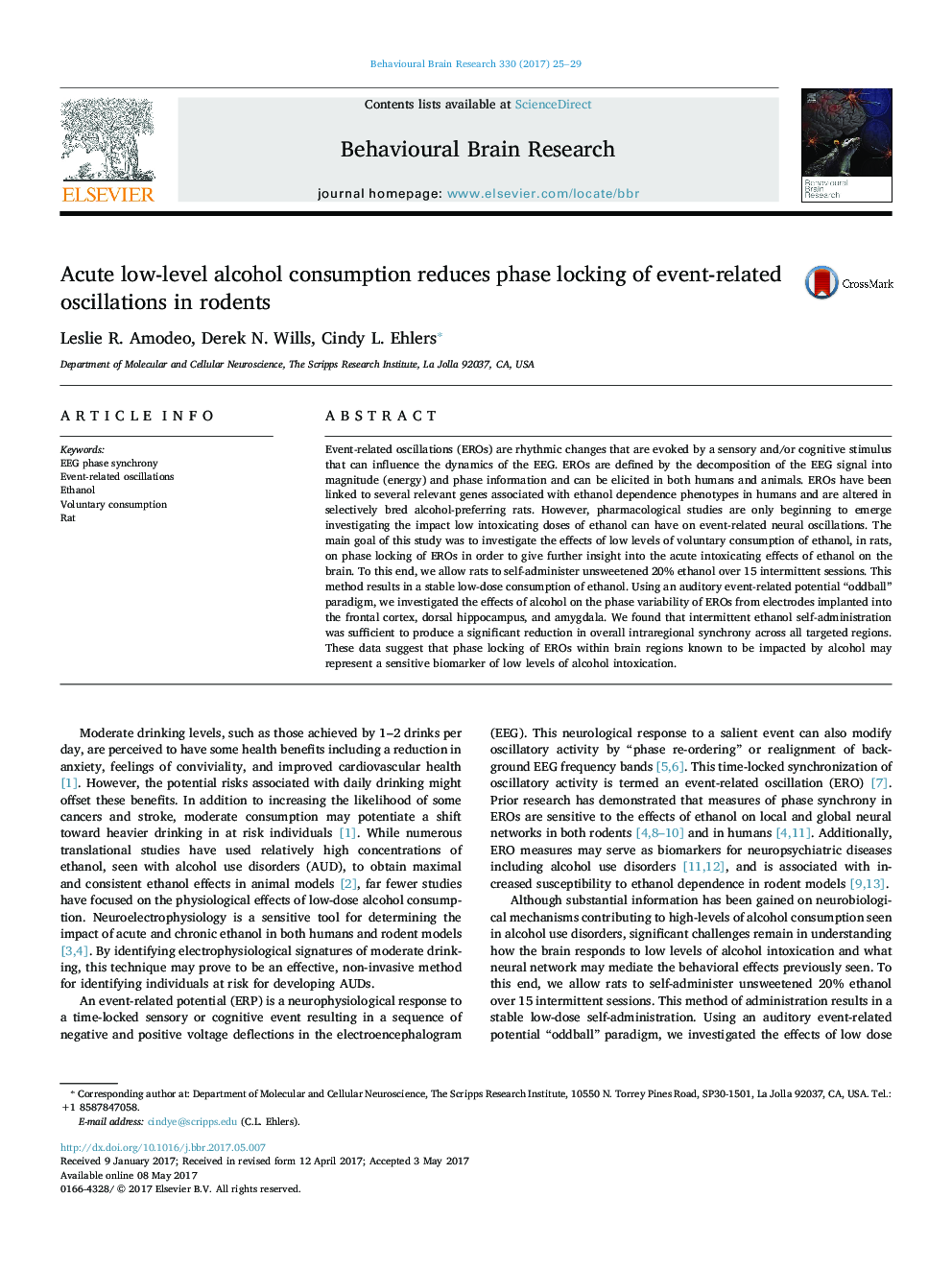| کد مقاله | کد نشریه | سال انتشار | مقاله انگلیسی | نسخه تمام متن |
|---|---|---|---|---|
| 5735067 | 1612905 | 2017 | 5 صفحه PDF | دانلود رایگان |
عنوان انگلیسی مقاله ISI
Acute low-level alcohol consumption reduces phase locking of event-related oscillations in rodents
ترجمه فارسی عنوان
مصرف مشروبات الکلی در سطح پایین باعث کاهش فاز قفل شدن نوسانات مربوط به رویداد در جوندگان می شود
دانلود مقاله + سفارش ترجمه
دانلود مقاله ISI انگلیسی
رایگان برای ایرانیان
کلمات کلیدی
موضوعات مرتبط
علوم زیستی و بیوفناوری
علم عصب شناسی
علوم اعصاب رفتاری
چکیده انگلیسی
Event-related oscillations (EROs) are rhythmic changes that are evoked by a sensory and/or cognitive stimulus that can influence the dynamics of the EEG. EROs are defined by the decomposition of the EEG signal into magnitude (energy) and phase information and can be elicited in both humans and animals. EROs have been linked to several relevant genes associated with ethanol dependence phenotypes in humans and are altered in selectively bred alcohol-preferring rats. However, pharmacological studies are only beginning to emerge investigating the impact low intoxicating doses of ethanol can have on event-related neural oscillations. The main goal of this study was to investigate the effects of low levels of voluntary consumption of ethanol, in rats, on phase locking of EROs in order to give further insight into the acute intoxicating effects of ethanol on the brain. To this end, we allow rats to self-administer unsweetened 20% ethanol over 15 intermittent sessions. This method results in a stable low-dose consumption of ethanol. Using an auditory event-related potential “oddball” paradigm, we investigated the effects of alcohol on the phase variability of EROs from electrodes implanted into the frontal cortex, dorsal hippocampus, and amygdala. We found that intermittent ethanol self-administration was sufficient to produce a significant reduction in overall intraregional synchrony across all targeted regions. These data suggest that phase locking of EROs within brain regions known to be impacted by alcohol may represent a sensitive biomarker of low levels of alcohol intoxication.
ناشر
Database: Elsevier - ScienceDirect (ساینس دایرکت)
Journal: Behavioural Brain Research - Volume 330, 14 July 2017, Pages 25-29
Journal: Behavioural Brain Research - Volume 330, 14 July 2017, Pages 25-29
نویسندگان
Leslie R. Amodeo, Derek N. Wills, Cindy L. Ehlers,
